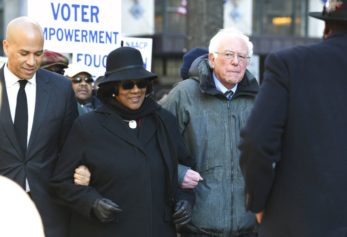Even though President Barack Obama says the economy has largely recovered from the Great Recession, an Associated Press article claims many working-class Americans are falling behind as wages are not keeping up with inflation. Citing figures from The Brookings Institution, The AP said incomes for the bottom 20 percent slid in New York City, New Orleans, Cincinnati, Washington and St. Louis.
According to Alan Berube, a senior fellow at Brookings and deputy director of its metropolitan policy program, this indicates income inequality is becoming a bigger problem.
“It’s really about the poor losing ground rather than these upper-class households pulling away,” Berube told The AP.
The Brookings Institution study found the greatest disparities in Boston, where the top 5 percent made 17.8 times what the bottom did. However, these figures may have been exacerbated by high-earning graduates coming out of Ivy league schools in the area. New Orleans had the second-highest income disparity at 17.7. Atlanta came in third at 17.5.
The study also found that rising housing costs were putting an increasing strain on Americans’ wallets. The Brookings Institution report discovered that Americans were spending about 30 percent of their income on housing, a figure they consider to be burdensome. The average cost of rent on a newly-built apartment was $1,372 a month in 2014, $500 more than half of renters could afford without feeling financially pressed.
Income inequality has become an issue in the 2016 presidential election. Democratic presidential candidate Sen. Bernie Sanders has called for an increase in the minimum wage. Like many economists, Sanders has argued the average wage has not kept up with the cost of living. Americans workers are still being productive, but they are struggling to make ends meet because everything has gone up – except their wages.
Sanders said raising the minimum wage to $15 an hour would actually stimulate the economy.
“When we put money into the hands of working people, they are going to go out and buy goods, they are going to go out and buy services and they are going to create jobs in doing that,” said Sanders during a Democratic debate. “It is not a radical idea to say that if somebody works 40 hours a week, that person should not be living in poverty.”
Republicans say an increase in the minimum wage would be passed on to consumers in the form of higher price. They also argue employers would have to layoff workers to cope with a higher wage bill. However, economists say this is not the case. According to The Miami Hurricane, Princeton University’s Alan Krueger and the University of California, Berkeley’s David Card, a study of minimum wage increases in 1998 found that it actually caused unemployment to go down.
“The researchers found that raising the wage floor does not necessarily mean bleeding jobs. In fact, relative to stores in Pennsylvania, fast food restaurants in New Jersey increased employment by 13 percent while employment for high-paying jobs was unaffected,” said The Miami Hurricane.
Faced with better working conditions, employees were more likely to stay at their jobs and be more productive, according to the researchers.



